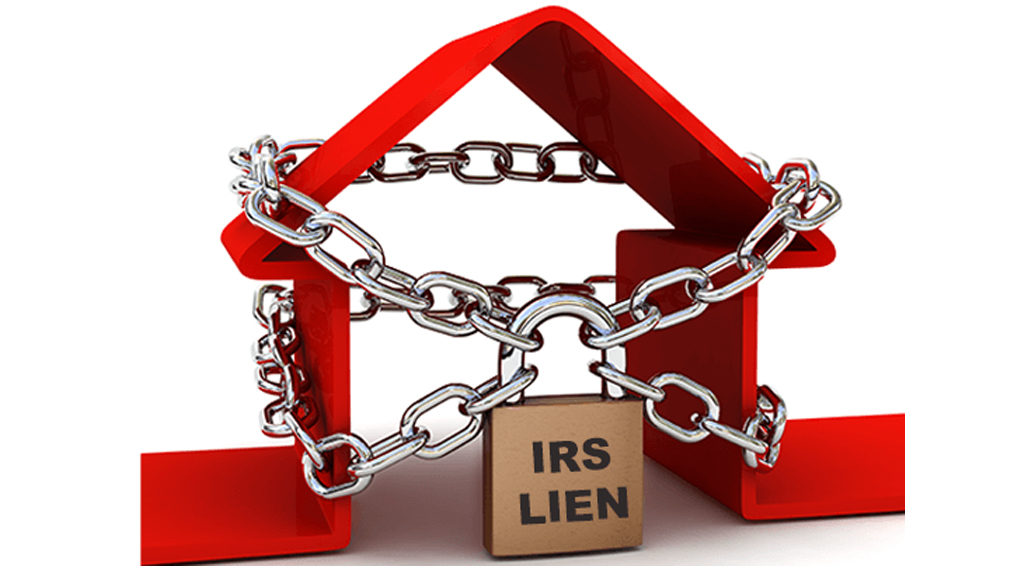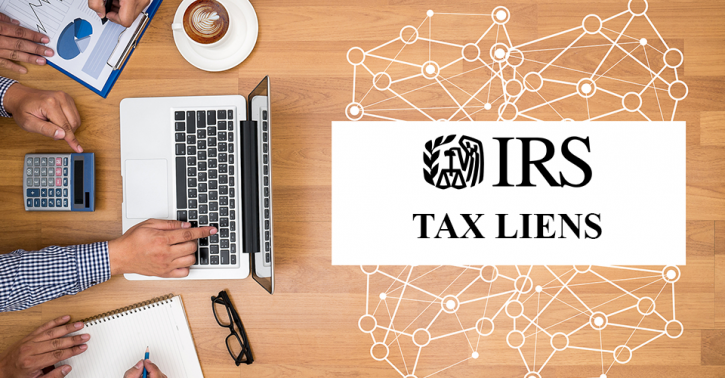
By Glory Jun, 25, 2020 Featured
What is Tax Lien?
A tax lien is a legal claim the government makes on a person’s property (assets) when they’re past due on income taxes. If you fail to meet the demands of your tax liability after the government sends a demand for payment to you, you might get a tax lien thereafter. Closely related to a tax lien is a tax levy which is an actual seizure of a person’s property to pay outstanding taxes. Tax levies can come in the form of asset seizures or bank account freezing or garnishing wages.
In addition, tax liens are publicized on public records, such that, they appear on your credit reports which will prevent you from taking a loan or refinancing your assets. If possible, avoid getting a tax lien by all means because it will remain on your public reports for up to 7 years from the date of filing. Sometimes it may last as long as 10 years before it is cleared from your report.
In the event of having late debt payments, the IRS makes a provision to help people struggling to settle their debts. You will not get a lien if you are making efforts to pay outstanding taxes. Peradventure you’ve had a lien placed on your assets already, the IRS will remove it within 30 days if you make efforts to pay back your taxes. Usually, the IRS may decide to extend your payment plan through an ‘offer in compromise’ plan. This happens mostly in cases where a taxpayer is unable to negotiate a payment plan.
Note: In line with the government’s response to the ongoing coronavirus response, the IRS has announced that systemic liens and levies will be suspended temporarily between April 1, 2020, and July 15, 2020.

Understanding Federal Tax Lien
To “qualify” for a tax lien, you must have outstanding tax payments. When that happens, the IRS will put your balance due “on the books” and then send you a bill that properly explains what you owe. The bill is a “Notice and Demand for Payment.” Further actions will be taken after you have received the bill and you neglect or refuse to fully pay the debt in due time.
The best way to get rid of a lien is to pay your tax debts in full, if possible. The IRS will withdraw your lien within 30 days of paying your tax debt. However, it may take a while before it is taken off your public records. There are also special conditions where other options can be considered to reduce the impact of an existing lien, which will be in the best interest of both the taxpayer and the government.
A lien “stains” your public record and may prevent you from getting a loan or asset refinancing in the future. However, there is an option of “Subordination” which allows creditors to go ahead of the IRS and grant loans. This may make it easier to get loans even with a lien showing on your public record. To be eligible for this, read the conditions required to apply for a Certificate of Subordination of Federal Tax Lien on the IRS website.
Once you fully pay your tax debts, you will get a lien “Withdrawal” which removes the public Notice of Federal Tax Lien from your public record with an assurance that the IRS is not in competition with any other competitors for your property.
What are the implications of a tax lien?
A tax lien can affect you in several ways. Mostly it affects your public records and puts your financial security at risk. Here are some ways a tax lien can affect you:
- Your public records will be affected: The implication of having a tax lien reflect on your public record is that it will affect your creditworthiness. Although Tax liens may not directly appear on credit reports anymore, the IRS still file a public notice to creditors informing them that the government has legal claims over your property. Creditors can only go ahead and grant you loans only if you qualify for ‘subordination’.
- It can jeopardize asset sale or refinancing: In the event where you want to sell your home or any other asset you have for cash-related reasons, having a tax lien will jeopardize the process. This is so because it is assumed that the government temporarily owns your home or asset until the loan is fully paid. However, if you have equity in an asset, you will have to use some of it to pay your outstanding taxes.
- You risk losing your assets: The worst-case scenario is when the tax lien graduates into a tax levy. You stand the risk of losing your asset to the government as a debt settlement. Before that happens, the IRS will issue a Notice of Intent to Levy.
- Your finances will suffer: Asides the risk of getting a tax lien, delayed tax payment will only incur more costs for you. This is in addition to the outstanding tax, future taxes, and daily expenses.

How to Avoid a Tax Lien
- Pay your tax on time: The best way to avoid a tax lien is to pay your tax bill when due. It is quite expected that things may not always go as planned. If you perceive that you may delay in payment at the due time, you can reach out to the IRS before time and request an extension.
- Request an Offer in Compromise: This option is made available by the IRS for taxpayers who may not be able to settle the full amount of their taxes at the due time. To qualify for this, you must have filed all of your tax returns in previous years, as well as meet the mark of the estimated tax payments for the current year. There are a lot of rules through which the IRS scrutinizes such applications. If you are in bankruptcy or being currently audited, the IRS will not approve your request.
- File for bankruptcy: This is not a great way to avoid tax liens, however, if the situation calls for it, it’s better you file for bankruptcy rather than stand the risk of losing your assets.
- Start an IRS tax payment plan: This provision is made by the IRS to help taxpayers repay their debt with a plan that is feasible for them, yet favorable to both the government and the taxpayer. A tax payment plan doesn’t do away with the interests and penalties, but it allows you to make payment three times instead of once.
What are the chances of finding valuable items or properties of people that default on taxes?
Finding a valuable property in a tax sale is like finding a “diamond-in-the-rough.” Tax sales are usually conducted by a taxing authority like ta state’s city tax department to recover tax debts from taxpayers who have failed to respond to the tax lien that was issued to them. To recover all outstanding taxes, the government has the legal right to sell off a taxpayer’s assets until the full amount is paid.
This presents a good opportunity for buyers and investors to take advantage of the sales. However, finding a valuable property may be quite challenging. Many of the assets or properties are given as collateral by the owners may not hold much value. For example, many land-only sales properties hardly ever have road access or rights to road access linked to them. This places restrictions on land use or may cost the buyer more than he/she planned. In some other cases, properties such as homes may be on the verge of falling down and holds little value, sometimes close to zero.
In addition, even if you were able to secure a good tax sales bid, there’s still no guarantee of ownership of the property until after six to twelve months redemption period. During that time, the original owner can reclaim full-ownership if they pay off the debt owed on the property in full. If that happens, as the buyer you will be refunded your money in full plus interest, but left without an investment property.
How does the government auction out tax lien items?
The municipality where a property is located auction’s tax lien items by issuing lien certificates to interested buyers. A tax lien certificate is what gets placed on your property once it comes due. It is a claim against a property that has a tax lien placed on it.
Once the certificate has been placed, the government will issue a tax lien. If you are able to pay your taxes on time, the lien will be removed. Before a property becomes eligible to be listed on a tax sale, it must have a tax default linked to it for a period of time.
When bidders bid during a tax lien sale, rather than bid on an amount, they will bid on the interest rate that should be placed on the property. The buyer who bids the lowest rate wins the auction and will be issued the tax lien certificate.
In some states, rather than perform a tax sales auction on all properties, they perform tax sales on only defaulted properties, with the winning bigger becoming the legal owner of the property. If a property owner fails to make full payment of tax debts within a six to twelve-month range, the lien certificate holder can initiate foreclosure proceeding to claim full ownership of the property.
The Value in tax lien investing
Basically, when you buy a tax lien, you pay the taxes for the property owner in exchange for a tax lien certificate. The certificate comes with an interest and is worth the amount it was sold for. Purchasing a tax lien certificate is a good way to diversify your real estate portfolio. However, if caution is not applied during investing in a tax lien property you may end up a little more disappointed than expected. Individual investors who want to consider lien investing must do thorough research about the property they intend to bid for.
When you buy a tax lien certificate, you don’t own the main property. What you get from the county when you purchase a lien certificate is the interest rate and late fees that the charge the owner when the taxes have been fully paid. In the event where the owner is unable to pay the taxes, you can initiate foreclosure proceedings to legally claim the property. The tax lien certificates interest differs by county. It could be lower or higher than 18%.
The risk that comes with tax lien investing
Every investment comes with a risk, however, the major risk associated with tax lien investing is buying a zero-value property. Before purchasing a tax lien certificate, be sure to do your homework on the property being auctioned, especially its physical state and where it is located. Again, after winning a bid, what you have is the tax lien certificate and the property owner still has leverage to reclaim the property between six to 12 months after the certificate has been issued.
Sometimes, big investors tend to “squeeze” out smaller investors by tightening the competition. Since it’s a bid and you don’t need much money to participate, such big investors can scare away smaller investors.
Notice from the IRS: Coronavirus (Covid-19) Tax Relief
The IRS’s People First Initiative offers relief for taxpayers with filed Notices of Federal Tax Lien (NFTL) or needing assistance with a lien program request such as a payoff or an NFTL withdrawal. If the relief needed is related to a COVID-created hardship, fax 844-201-8382 to request relief.
Tags: Tax Tax Lien Investing
Share On Facebook Twitter Linkedin Whatsapp Telegram
Categories
Latest Post
- Nigeria Taps Global Markets with $2.25B Eurobond Sale
- Boeing Shares Rise as CEO Confirms China Deliveries to Resume Next Month
- STOCK SPOTLIGHT: UNION HOMES REAL ESTATE INVESTMENT TRUST (UHREIT)
- Nvidia Q1 2025 Earnings Report Summary
- 📉 U.S. Market Summary – May 28, 2025
- CBN Launches New Financial Tools to Boost Nigeria’s Non-Interest Banking Sector! ✨
- Market Watch: Key Updates as Wall Street Awaits Nvidia and Salesforce Earnings
- U.S. Equity Markets Rally as EU Tariff Deadline Is Extended and Consumer Confidence Surges
- Things to Know Before the U.S. Stock Market Opens
- What to Expect in the Markets This Week (May 27–31)

Start investing with Acorns today! Get $5 when you use my invite link: Z24WWE
